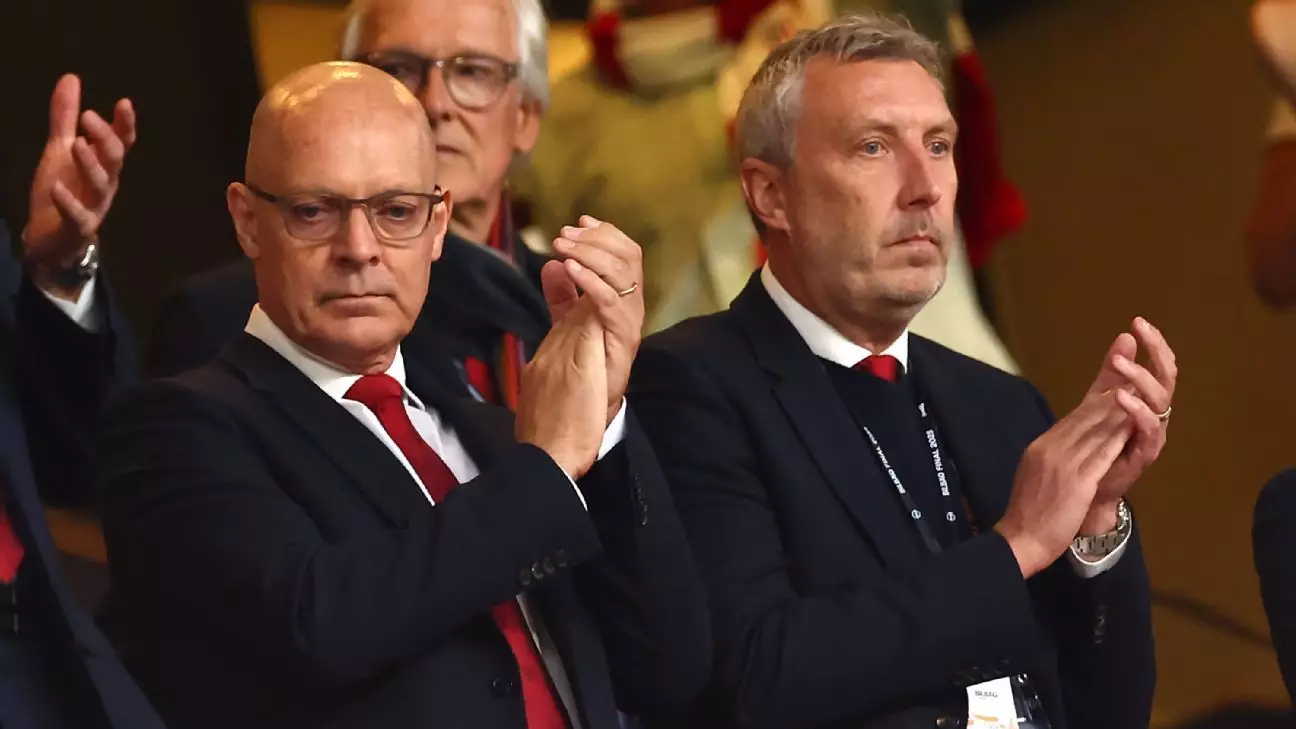The tumultuous waters of Manchester United’s management structure continue to churn as Dave Brailsford, a pivotal figure in the club’s recent reshuffling, scales back his involvement. Originally celebrated for revolutionizing British cycling and driving Olympic triumphs, Brailsford’s transition into football was met with significant anticipation. However, as insider reports indicate, Brailsford’s retreat from day-to-day operations reflects a deeper turmoil within the club that has led to disappointing on-field performances. Under billionaire Jim Ratcliffe’s minority ownership, expectations were sky-high, but the team’s disappointing placement of 15th last season serves as a stark reminder that even the most robust plans can falter.
A Change in Leadership Dynamics
This shift signals a broader trend of instability within a historically prestigious club that appears to be struggling to find its footing. Since Ratcliffe acquired a 25% stake in Manchester United, the organization has been replete with leadership changes. The turnover has sparked debates about the efficacy of rapid change. For instance, Erik ten Hag’s firing just months after extending his contract indicates a lack of patience for the rebuilding process, which is essential in sports. Directors are jettisoned as quickly as they are hired; Dan Ashworth’s departure less than six months into his tenure underscores a troubling narrative of instability. Each new appointment, from Omar Berrada to Jason Wilcox, underscores the challenge of establishing coherent long-term goals amid frequent upheaval.
The Pressure of Expectations
One cannot ignore the looming shadow of the Glazer family’s ownership, which remains a point of contention among fans and critics alike. After Ratcliffe’s entrance, many hoped for a revival of the club’s fortunes. Yet, the ongoing reliance on a management model fraught with inconsistencies raises questions about the restructuring’s efficacy. With Brailsford’s decision to step back, the question arises: Can any new appointment fix long-standing issues, or are they merely shifting deck chairs on a sinking ship? Football is a results-driven industry, and the pressure to deliver quick results can often overwhelm much-needed long-term strategies.
The Future of Football Operations
Interestingly, while Brailsford’s daily influence diminishes, he remains in an advisory capacity, suggesting that his expertise could still play a role in shaping the football operations at United. However, with significant changes already manifesting, the next in line must carry a torch that has been passed hastily between numerous new faces. There lies a palpable sense of urgency; the fans, hungry for success, witness what seems to be a club in a continuous cycle of mismanagement and missed opportunities.
In this clashing narrative of ambition and reality, Manchester United finds itself at a crossroads. Can it rise from the ashes of underperformance and ineffective leadership, or will it remain mired in an identity crisis that reflects a failure not only in management but also in vision? The coming months will be critical for recalibrating Manchester United’s trajectory, with long-term consequences for the club’s prestige hanging in the balance.

Leave a Reply